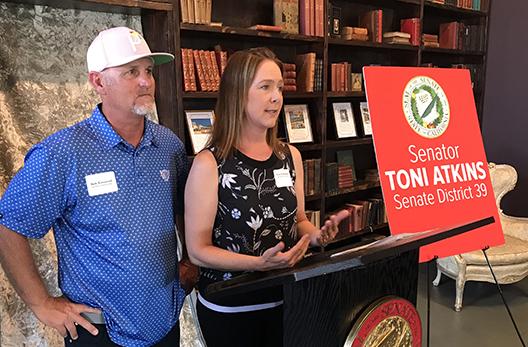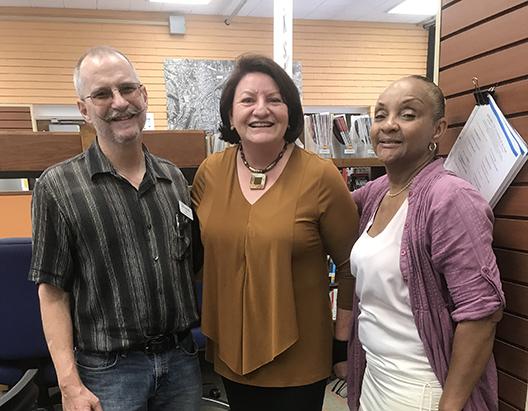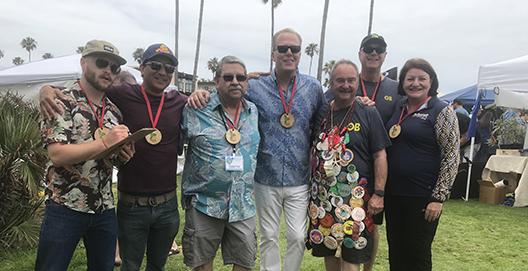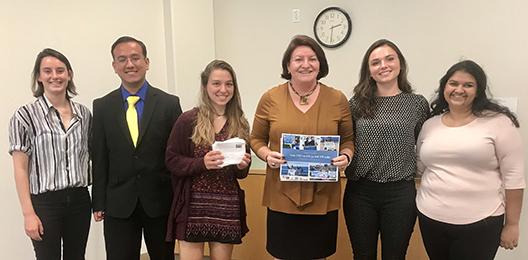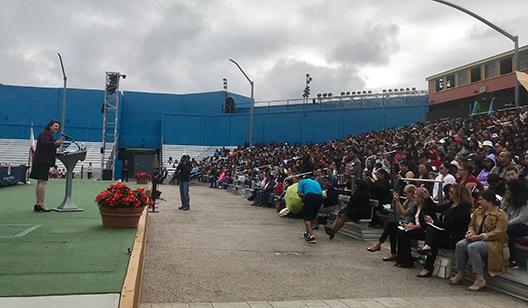July 2019 Newsletter
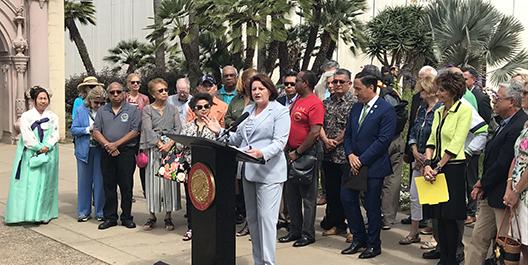 Announcing funding for Balboa Park |
I’ll never forget what it was like to join the state Legislature in 2010 and immediately be forced to confront a $26-billion budget deficit. The conversation wasn’t about how we could move California forward – it was about which of the important programs that millions of residents rely on would be saved, and which ones would be eliminated or cut to the bone.
Thanks to a strong economy powered by our small businesses, responsible governance, and wise decisions by the voters, things are very different today.
Don’t get me wrong: We still face daunting challenges – housing affordability, the linked issues of wildfires and energy reliability, and the too-high cost of health care, to name three – and we are addressing them. But our state’s finances are in the best shape in a generation.
Not only have we been able to increase our budget reserves to $19.4 billion to cushion the blow of the next economic downturn, and reinvest and build upon many of the programs that had been decimated during the Great Recession – we’re also able to inject significant resources directly into local communities throughout California.
For example, nearly $60 million will be sent to the San Diego region for projects that will protect public safety, support vulnerable children and improve quality of life:
- $6.13 million to stabilize the bluffs on the coast of Del Mar, protecting one of the most active rail corridors in the country, as well as the beach below.
- $8.66 million to renovate the iconic Botanical Building and complete construction of the international cottages in Balboa Park, enhancing our crown jewel and a major economic driver.
- $9 million to renovate Building 178 in the former Naval Training Center (Liberty Station), so that it can be transformed into a performing arts center.
- $21 million to create a rail crossing for cars and pedestrians alike at Park Boulevard near Petco Park, improving public safety and connectivity.
- $1.67 million to support youth experiencing homelessness in San Diego County with housing and other services, part of $6.67 million that will be shared with Los Angeles, San Francisco, and Santa Clara counties.
- $1 million split evenly among the cities of Encinitas, Carlsbad, Oceanside and Vista for programs aimed at preventing homelessness in North County.
- $5 million to complete studies that are necessary for Caltrans to move forward with a permanent suicide deterrent on the San Diego-Coronado Bridge.
- $5 million to create an aquatics center at the Jackie Robinson YMCA.
- $1.5 million so that the Scripps Institution of Oceanography in La Jolla can continue the research that informs policy decisions as we prepare for the impacts to climate change and sea-level rise.
In addition to these investments in our local residents and our communities, highlights of the state budget include record funding for education, a dramatic expansion of our state Earned Income Tax Credit for working families and individuals, assistance to help middle-class families pay for health care, additional funding for communities struggling with homelessness, and funding to clean up contaminated drinking water.
Through the good times and the difficult times, whether the days are sunny or covered with clouds – I continue to be proud to represent San Diego and will always work hard to help make our region, and all of California, better and better for everyone.
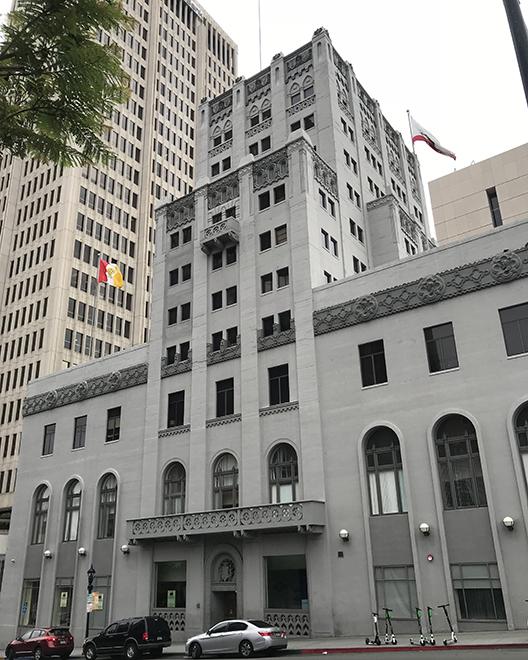 Connections Housing |
Given California’s housing crisis, we need as many tools at our disposal as possible. This year, I have a bill that will give us another one – a state-level historic preservation tax credit.
SB 451 would augment the existing federal historic preservation tax credit and add an incentive for owners of officially designated historic buildings to renovate their properties and potentially create new housing opportunities.
The bill would provide a credit of at least 20% of the cost of rehabilitating a historic building. The credit would grow to 25% for projects that include affordable housing, or include high-density housing mixed with retail or other uses and are located within a half-mile from a transit station.
We need only look at how the federal tax credit has helped create housing to know that it works. Between 2007 and 2017, developers of at least 33 projects used the federal credit to create new housing in Los Angeles, Hollywood, Long Beach, San Luis Obispo, Capitola, San Francisco, Oakland, Richmond, Sausalito, Sacramento, Chico, and San Diego.
In San Diego, Affirmed Housing used the federal credit to help turn downtown’s historic San Diego Athletic Club building into Connections Housing, which provides 223 apartments with supportive services to people who previously struggled with chronic homelessness.
The San Diego Housing Commission renovated the historic Churchill Hotel in downtown San Diego to provide 72 apartments for military veterans, people who are 18 to 24 years old, and people who were formerly incarcerated. That project could have been financed and completed sooner if SB 451 had been in place.
The historic California Theatre, also downtown, dilapidated and abandoned for nearly 30 years, will be turned into San Diego’s tallest housing project, while retaining its beautiful historic features. It’s a likely candidate for a tax credit under SB 451.
Housing developers, especially those who create affordable housing, typically must piece together numerous financial tools to make their projects happen. The value of such a credit is that it could provide that last necessary incentive to make a project financially feasible.
And SB 451 is not only about housing – it would also apply to renovation of historic structures intended for retail, office space or hotels, any of which can help eliminate blight, revitalize an area, create jobs, and boost a region’s economy. Liberty Station, a decommissioned military base whose redevelopment benefited from numerous federal historic tax credits, is a perfect example of this.
I am confident that it can be another tool in our toolbox as we work to build more affordable housing that goes hand-in-hand with enhanced transit.
We had a great time in Verbatim Books’ new event space in North Park at my annual reception for some of the wonderful small businesses that help make the 39th Senate District so great. Many of our past honorees joined us, as did a handful of new honorees, such as Simply Local (North Park), Smitty’s Service (Normal Heights), Matt Kalla Insurance Agency (Point Loma Heights), Venice Pizza (Mid-City), Old Town Trolley Tours, Station Tavern and Burgers (South Park), The Huddle (Mission Hills), and my Small Business of the Year, the Chicken Pie Shop (North Park). Congratulations to the honorees – and thank you to all small-business owners who power and shape our region!
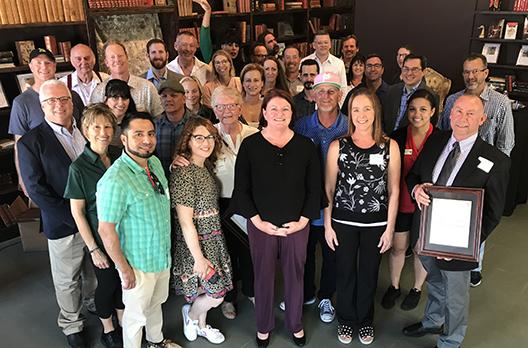 |
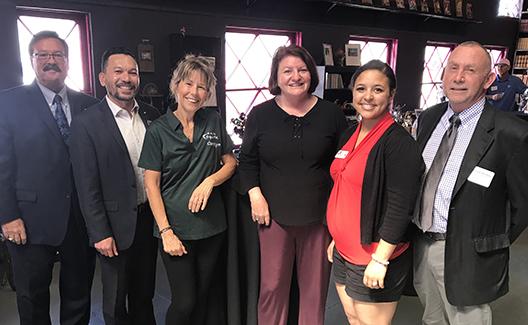 |
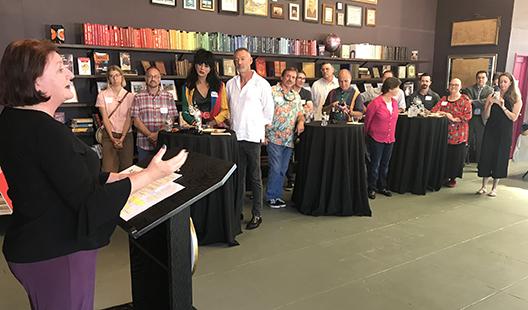 |
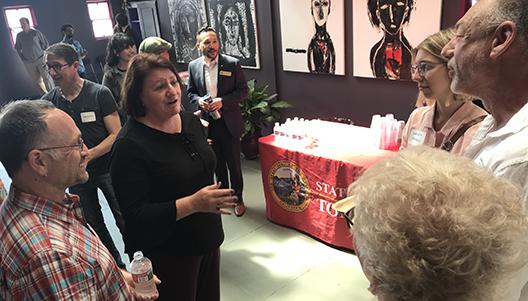 |
|
|
We’ve reached the second half of this year’s legislative session, with Senate bills being considered in the Assembly, and vice versa. Here’s a rundown of my legislation this year:
SB 1 – the California Environmental, Public Health, and Workers Defense Act of 2019 – is California’s “insurance policy” against the reckless deregulation happening at the federal level. SB 1 ensures that any federal environmental or worker safety standard in place as of January 19, 2017, remains in effect under state law even if the federal government rolls it back. SB 1 cleared the Assembly Environmental Safety and Toxic Materials Committee on June 18.
SB 66 allows clinics and rural healthcare providers to bill Medi-Cal for two visits on the same day if patients receive mental health treatment on the same day they receive other medical treatment. This will help ensure healthcare providers can continue to deliver vital mental health services and be reimbursed for those services. SB 66 will be heard by the Assembly Health Committee on July 2.
SB 165 is the next step to ensure that limited English proficient Medi-Cal enrollees have qualified in-person language interpreter services when they visit their medical provider. The bill is a follow-up to AB 635, which required a study of the issues surrounding medical interpreters and creates a four-site pilot project. SB 165 will be heard by the Assembly Health Committee on July 2.
SB 451 creates an economic-development tool by establishing a tax credit for the preservation and rehabilitation of historic buildings in California. To qualify, the property must be on the National Register of Historic Places or the California Register of Historical Resources. The applicable credit will be for 20% of the qualified rehabilitation expenditures, and would offer a 5% bonus on top of that if certain criteria are met. California is one of 15 states that do not have a state-level historic preservation tax credit. SB 165 will be heard by the Assembly Revenue and Taxation Committee on July 1.
SB 507 transfers the remaining submerged areas within San Diego Bay controlled by the State Lands Commission to the Port of San Diego. The bay’s waters would be better managed by the same local agency that oversees the land around the bay – the Port of San Diego. SB 507 is common-sense and overdue legislation that will improve environmental, economic and safety conditions in San Diego Bay and eliminate duplicative efforts while maintaining the protection of the public tidelands. SB 507 cleared the Assembly Natural Resources Committee on June 25.
I will continue to provide updates on all of my bills as they work their way through the legislative process. Please feel free to contact my terrific, hard-working district staff for the latest information from the Capitol: 619-645-3133.
|
Social Media Corner |
 |
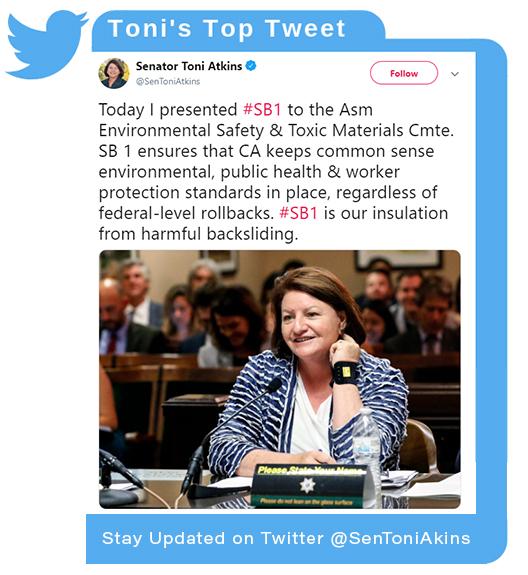 |
My district staff is always available to help constituents navigate a complex web of state agencies. If you’re having trouble working out an issue with any state agency, please call my office at 619-645-3133, and my staff will do everything in their power to help.
|
My District Staff |
Where to Find Me Online
|
My district office is located at 1350 Front St., Room 4061, San Diego, CA 92101.
|
|
|
|
|
|
|
|
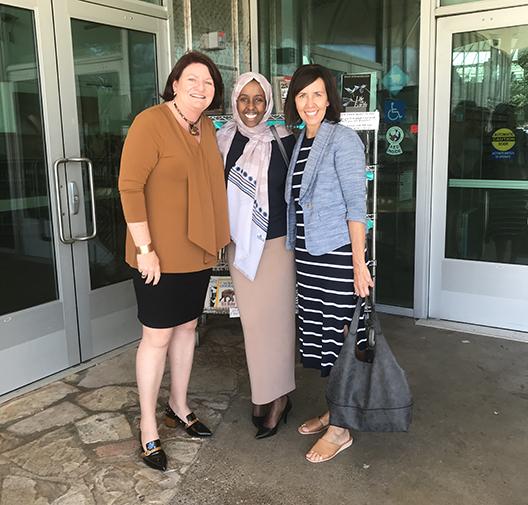 It was a productive conversation about the 2020 Census with Ramla Sahid and Lori Schellenberger from the Partnership for the Advancement of New Americans. |
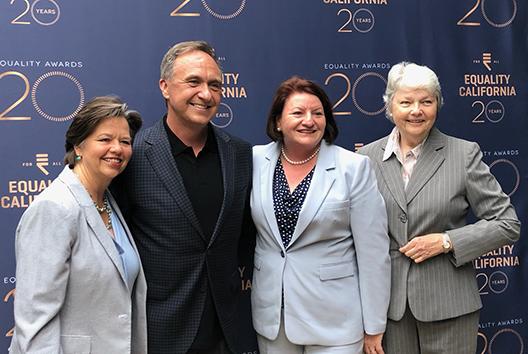 Thrilled to attend Equality California’s San Diego Equality Awards and celebrate those who promote LGBTQ rights. My spouse Jennifer and I are pictured here with EQCA Executive Director Rick Zbur and my mentor Christine Kehoe. |

